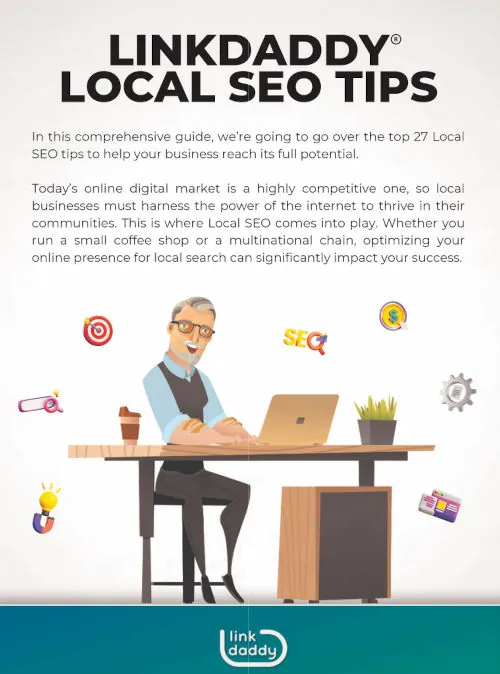
Digital marketers and website owners need to stay ahead of the curve in the continuously changing field of search engine optimization (SEO). Just when we thought we had a firm grasp on Google’s algorithms and ranking factors, the search giant threw us a curveball with the introduction of Google’s Search Generative Experience (SGE).
Search Generative Experience is a groundbreaking feature that aims to enhance the user experience by providing instant answers and generating content directly on the search engine results pages (SERPs). is a groundbreaking feature that aims to enhance the user experience by providing instant answers and generating content directly on the search engine results pages (SERPs). Gone are the days when users had to click on a website link to find the information they were looking for. With SGE, Google aims to provide relevant and accurate information at lightning speed, eliminating the need for users to visit other websites.
So, what does this mean for SEO professionals and website owners? Well, quite a lot. With a significant percentage of keywords now triggering SGE, traditional SEO techniques that focus on website rankings alone may no longer be sufficient. It’s no longer just about getting your website to appear on the first page of search results; it’s about capturing the attention of users directly on the SERPs.
This shift in user behavior and search experience requires a new approach to SEO. Website owners and digital marketers must now focus on optimizing their content for SGE by providing concise and accurate information that answers user queries. Crafting compelling meta descriptions and utilizing structured data markup becomes even more crucial as Google relies on these elements to generate content on the SERPs.
SGE poses challenges for businesses that heavily rely on organic search traffic. With Google providing more information directly on the results page, users may be less likely to click through to a website. This could potentially lead to a decline in organic search traffic for websites that fail to adapt to this new search dynamic.
In this blog series, we will explore the impact of SGE on SEO, delve into strategies to optimize content for SGE, and discuss the potential opportunities and challenges this new search experience presents. Stay tuned as we navigate the ever-changing world of SEO in the era of Google’s Search Generative Experience.
Understanding Search Generative Experience (SGE)
Understanding Search Generative Experience (SGE) has become more critical than ever, as it revolutionizes the way users interact with search results. The purpose of SGE is to provide users with instant answers and generate relevant content directly on the search engine results page (SERP). This not only saves time for users but also enhances their overall search experience.
One of the key benefits of SGE is the ability to provide immediate answers to user queries without the need to click on any website link. Previously, users had to visit a website to find the information they were looking for. Now, Google has taken it upon itself to extract and display snippets of information directly in the SERPs. For example, if a user searches for the weather in a specific location, SGE will provide the current temperature, weather conditions, and even a short-term forecast.
SGE also generates content based on the user’s search query. By analyzing the search intent and context, Google is able to collate information and present it in a concise and informative manner. This not only saves users time but also provides them with a quick overview of the information they are seeking. For instance, if a user searches for the benefits of green tea, SGE may generate a list of key benefits such as improved brain function, fat burning, and reducing the risk of certain diseases.
The user experience with SGE is seamless and efficient. Users no longer have to navigate through various websites to find the information they need. Everything is conveniently available on the SERP, allowing for a faster and more efficient search experience. Additionally, SGE is particularly beneficial for mobile users who are looking for quick answers on the go.
For businesses, SGE presents new opportunities to capture user attention and drive organic traffic to their websites. By optimizing their content for SGE, businesses can ensure that their snippets and generated content appear prominently on the SERP. This can increase brand visibility and credibility, ultimately driving more traffic to their website.
SE Ranking Analysis Reveals the Widespread Adoption of SGE

In a recent analysis conducted by SE Ranking, it was revealed that the adoption of Google’s Search Generative Experience (SGE) has become widespread across various industries. This groundbreaking feature, which generates content directly on the search engine results pages (SERPs), has significantly impacted the way users interact with search results and has presented new challenges for SEO professionals.
SE Ranking’s analysis found that a substantial percentage of keywords now trigger SGE, indicating that Google has integrated this feature extensively into its search algorithm. This means that when users search for certain queries, Google generates content such as featured snippets, instant answers, and knowledge panels directly on the SERPs, eliminating the need for users to click through to external websites.
The impact of SGE on organic search traffic cannot be overlooked. With Google providing more information directly on the SERPs, users are now able to find the answers they are looking for without having to visit individual websites. This has led to a decline in click-through rates for some websites, as users are satisfied with the information presented by Google.
For SEO professionals, this widespread adoption of SGE poses significant challenges. Traditional SEO techniques that focus solely on website rankings are no longer sufficient to drive organic traffic. SEO professionals now need to rethink their strategies and adapt to this new search dynamic.
One of the main challenges is optimizing content for SGE. Website owners and digital marketers must provide clear and concise information that answers user queries effectively. Optimizing meta descriptions and leveraging structured data markup become critical as Google relies on these elements to generate content on the SERPs.
Another challenge is ensuring the visibility of websites despite the decline in click-through rates. SEO professionals need to consider alternative ways to capture user attention, such as creating compelling titles and meta descriptions that entice users to click through to their websites. They may also need to explore other channels, such as social media and paid advertisements, to drive traffic and increase brand visibility.
The Evolution of SEO Strategies in the SGE Era
As users no longer need to visit websites to find information, we must find ways to stand out and offer something that Google’s SGE cannot provide. In this post, we’ll explore strategies to optimize content for SGE compatibility while still maintaining a unique value proposition.
1. Embrace Structured Data Markup: Structured data markup plays a crucial role in helping Google understand and interpret the content on your website. By implementing this markup language, you can provide additional context about your content, making it easier for Google to generate accurate answers and snippets. However, make sure to leverage structured data in a way that complements your content’s uniqueness, such as highlighting specialized expertise or unique perspectives.
2. Focus on Expert Insights and Analysis: Despite SGE’s ability to generate instant answers, users still value expert insights and analysis. Delivering in-depth content that goes beyond basic facts and provides unique perspectives will attract users seeking a deeper understanding of a topic. This could involve sharing case studies, expert opinions, or thought-provoking analysis that adds value beyond a simple answer.
3. Leverage User-Generated Content: User-generated content (UGC) can be a powerful tool for providing unique value. Encourage your audience to participate in discussions, share their experiences, or submit user-generated articles and reviews. UGC not only adds diversity to your content, but it also humanizes your brand by giving voice to your customers and community.
4. Be Interactive and Engaging: To differentiate yourself from SGE, create interactive and engaging content that cannot be replicated by a search engine. This could include interactive quizzes, calculators, games, or personalized recommendations. By offering a unique interactive experience, you can capture and retain user attention, prompting them to explore more of your website.
5. Emphasize Long-tail Keyword Optimization: While SGE may dominate quick and short queries, long-tail keywords still present opportunities for unique value. Targeting more specific and niche keywords allows you to cater to specialized audiences and provide detailed and tailored information that goes beyond what SGE can offer.
Predicting the Future of Organic Search Traffic

With the rise of Google’s Search Generative Experience (SGE), website owners and digital marketers face the challenge of declining organic search traffic. As users find answers directly on the search engine results pages (SERPs), clicking through to websites becomes less common. In this blog, we will explore alternative avenues to drive traffic and maintain visibility in the SGE era, focusing on social media and influencer marketing.
1. Social Media Engagement: Social media platforms offer a unique opportunity to engage directly with your target audience. By sharing valuable content, interacting with users through comments and messages, and participating in industry-related discussions, you can build a loyal community of followers. Engaging with your audience on social media establishes your brand as an expert and encourages users to visit your website for more in-depth information.
2. Paid Social Advertising: While organic reach on social media can be limited, leveraging paid social advertising can help you reach a wider audience. Platforms like Facebook, Instagram, and LinkedIn offer sophisticated targeting options, allowing you to hone in on your desired audience based on demographics, interests, and behaviors. By crafting compelling ad copy and visuals, you can entice users to click through to your website and explore your offerings.
3. Influencer Partnerships: Influencer marketing has become an essential strategy for driving traffic and increasing brand visibility. Partnering with influencers in your niche allows you to tap into their audience’s trust and influence. When influencers share content about your brand or recommend your products/services, their followers are more likely to visit your website to learn more. This increased visibility can counterbalance the decline in organic search traffic.
4. Email Marketing: Building and nurturing an email list is an effective way to maintain a direct line of communication with your audience. By consistently delivering valuable and personalized content through email, you can drive traffic to your website and maintain engagement with your subscribers. Utilize targeted email campaigns, exclusive promotions, and personalized recommendations to incentivize recipients to visit your website and explore further.
5. Content Diversity: To drive traffic in the SGE era, consider diversifying your content across different mediums. Alongside blog posts, create engaging videos, podcasts, or interactive experiences that are shareable on social media platforms. This diverse content approach will attract different audience segments, increasing the chances of them visiting your website from these alternative avenues.
Adapting to the SGE Shift: Tips and Best Practices
As Google generates content directly on the search engine results pages (SERPs), website owners and digital marketers need to prioritize ongoing monitoring and adaptation to stay ahead. In this blog, we will discuss the importance of monitoring and adapting to the SGE landscape and provide best practices to optimize your SEO efforts.
1. Stay Current with Algorithm Updates: The SGE shift means that Google’s algorithms and ranking factors are continuously evolving. It is crucial to stay informed about algorithm updates and changes that might impact your website’s visibility and performance. Subscribe to industry publications, follow SEO experts, and participate in forums to stay up-to-date with the latest developments. Being aware of algorithm shifts will allow you to adapt your SEO strategies accordingly.
2. Analyze SERP Changes and User Behavior: Monitoring the SERPs for changes related to SGE is essential to understanding how your website can adapt. Pay attention to the types of content generated by Google, such as instant answers, featured snippets, and knowledge panels, and how they impact user behavior and click-through rates. By analyzing these changes, you can identify opportunities to optimize your website’s content and stand out in the SGE landscape.
3. Optimize for Featured Snippets: Featured snippets play a significant role in SGE, as they are often generated by Google to provide instant answers to user queries. Optimize your content to increase the chances of being featured in snippets by providing concise and well-structured information. Focus on answering user queries directly and using headers, bullet points, and tables to improve readability and enhance the chances of being showcased in snippets.
4. Focus on User Experience (UX): SGE emphasizes providing instant answers and enhancing the user experience. Therefore, prioritizing UX on your website is crucial for attracting and retaining visitors. Ensure your website has a fast loading speed, is mobile-friendly, and offers a seamless navigation experience. Additionally, optimize your content for voice search, as SGE heavily relies on voice-activated devices to provide answers.
5. Adapt Your Content Strategy: The SGE landscape calls for a shift in content strategy. Rather than solely relying on organic search traffic, diversify your content to engage users on multiple platforms. Focus on creating high-quality, valuable content that goes beyond simple answers, providing in-depth insights and unique perspectives. This strategy helps increase the authority and awareness of your brand while also appealing to visitors looking for more specific information.
Summary

The widespread implementation of Google’s Search Generative Experience will undoubtedly transform the search landscape, altering how users interact with search results and impacting organic search traffic. However, by understanding SGE, adapting SEO strategies, and exploring alternative traffic sources, website owners and SEO professionals can navigate this shift successfully.
Embracing SGE requires a reevaluation of SEO tactics and a focus on optimizing content for the SERPs. Website owners should strive to provide concise and accurate information that directly answers user queries, optimizing meta descriptions and leveraging structured data markup. By doing so, they can enhance their visibility and increase the chances of capturing user attention on the search results page.
Additionally, it is crucial to diversify traffic sources beyond organic search. With the declining click-through rates caused by SGE, website owners must explore alternative avenues to drive traffic. This can include leveraging social media platforms, engaging with influencers, and investing in paid advertising to reach a wider audience. By expanding their reach and building a strong online presence, website owners can mitigate the impact of SGE on organic search traffic.
Furthermore, continuous monitoring and adaptation are vital in the SGE era. Keeping up to date with algorithm changes, analyzing SERP updates, and understanding user behavior will enable SEO professionals to adapt their strategies accordingly. By staying current and adjusting their tactics, they can capitalize on opportunities presented by SGE and maintain a competitive edge.
Frequently Asked Questions
It is highly unlikely that SGE will completely replace organic search traffic. While SGE can provide quick and concise information, organic search traffic is still valuable for more in-depth and specific results that require context or a wider range of sources.
To differentiate their content from SGE-generated answers, website owners can focus on providing comprehensive and detailed information, offering unique perspectives or insights, and creating engaging and interactive content that goes beyond simple factual answers.
Industries or niches that heavily rely on providing factual and straightforward information, such as recipe websites, dictionary or encyclopedia sites, or basic how-to guides, are more likely to be affected by SGE. However, industries that involve subjective opinions, creative content, or complex analysis are less likely to be significantly impacted.









